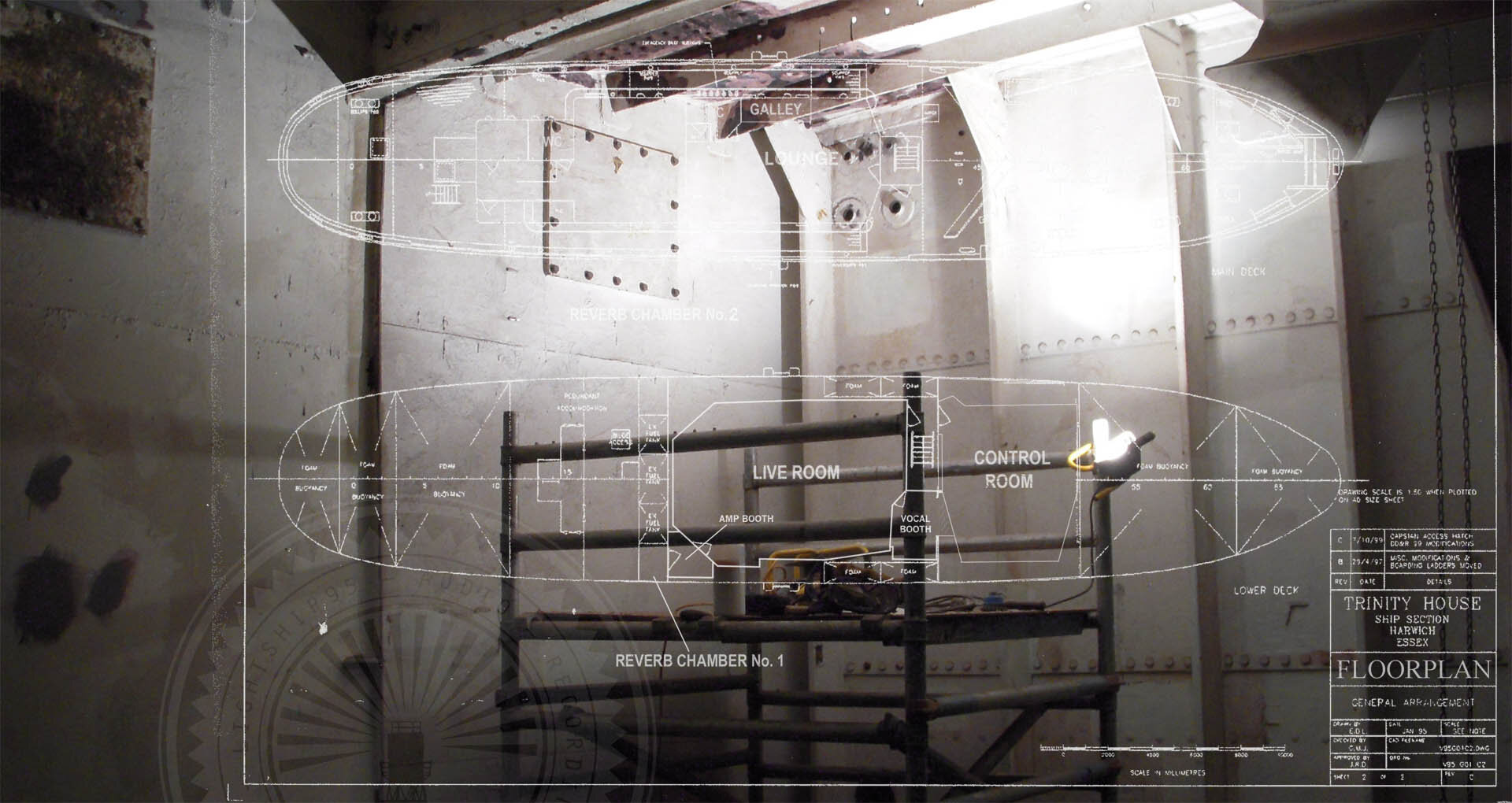
Studio Conversion
Lightship95, originally commissioned by Trinity House (a 500 year old company started by Henry VIII) was built in Portsmouth in 1939. It is one of the finest and possibly one of the last examples of an all-riveted steel ship beautifully made to withstand all weather conditions and frequent collisions. The ship is classed as a heritage vessel and one of only a few left in the world. More information can be found on the History page.
Before any work could start on the studio or accommodation build, a serious amount of steel had to be cut out and removed. Although gruelling and heavy going this period of time allowed for the extensive research and planning to develop ready for the next stage.
The control room was originally a huge diesel tank, made of 10mm plate, bigger than the average living room, surrounded by piping, walkways and a 1940's Lister engine used to power the hydraulic capstan. The live room was the original engine room, later divided into three compartments by two double storey bulkheads. In the two main studio areas alone we cut and hand winched out over 12 tonnes of steel.
The studio design constantly evolved as the space opened out. Problems were solved and replaced by further problems. The shape of a ship and the complete lack of any level to work from made forward planning very difficult and while the principles of the construction were in place early on the methods were developing weekly. Every aspect had to be bespoke and while serious injury was avoided it was not through want of trying.
Structural loading was not the issue it can often be with studio conversions in existing buildings as the Lightship is so heavily over engineered; more than double the weight of a similarly sized cargo ship. However while the inch thick, extremely rigid steel hull is great at preventing airborne sound transmission, the resonance and mechanical transmission could only be overcome by both the control room and live room being entirely independent floating structures. Both rooms are supported/hanging on neoprene mounts and the results are excellent; the drum kit cannot be heard in the cabins situated immediately behind the live room and nothing can be heard outside on deck. Most of the conversion was carried out in the Medway and then completed once in London; a little over a year and a half in total.
The conversion was concieved and undertaken by Ben Phillips, the producer and engineer who ran the studio until 2017, when it was taken over by Soup Studios. In 2021, Soup Studios moved to a new premises, and the studio on Lighthship 95 is run by Dave Holmes & Giles Barrett, who previously worked at Soup Studios.
